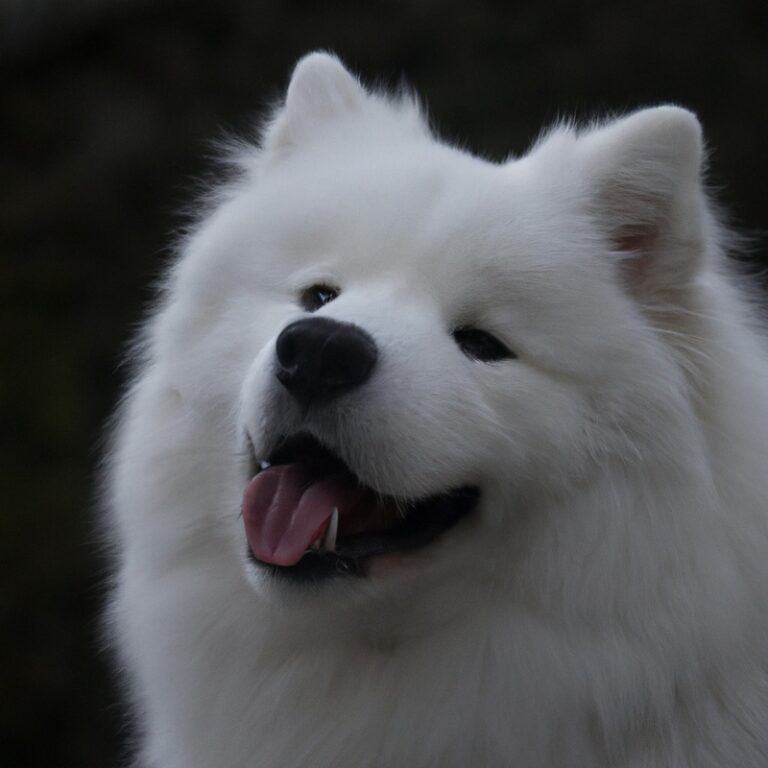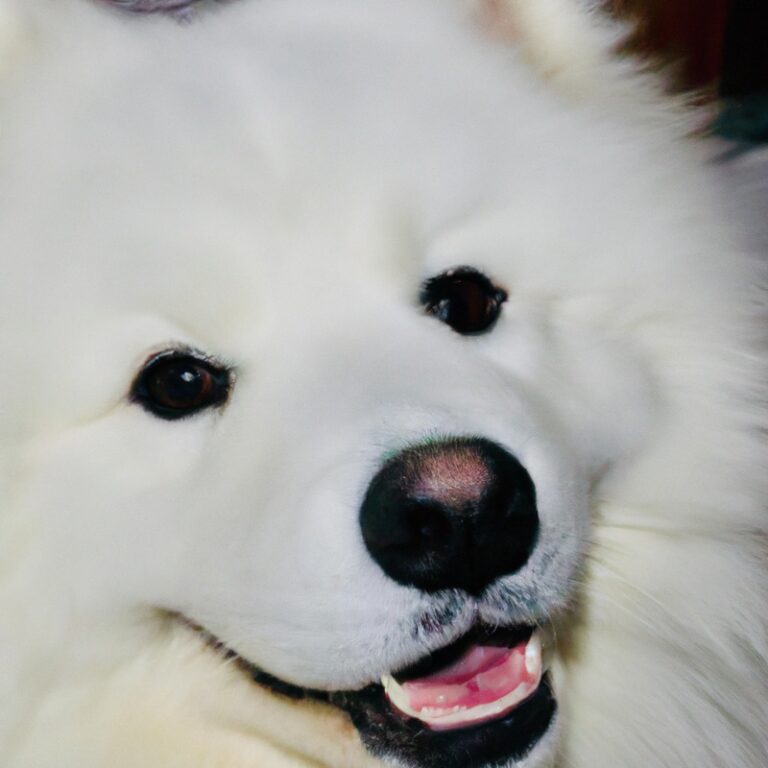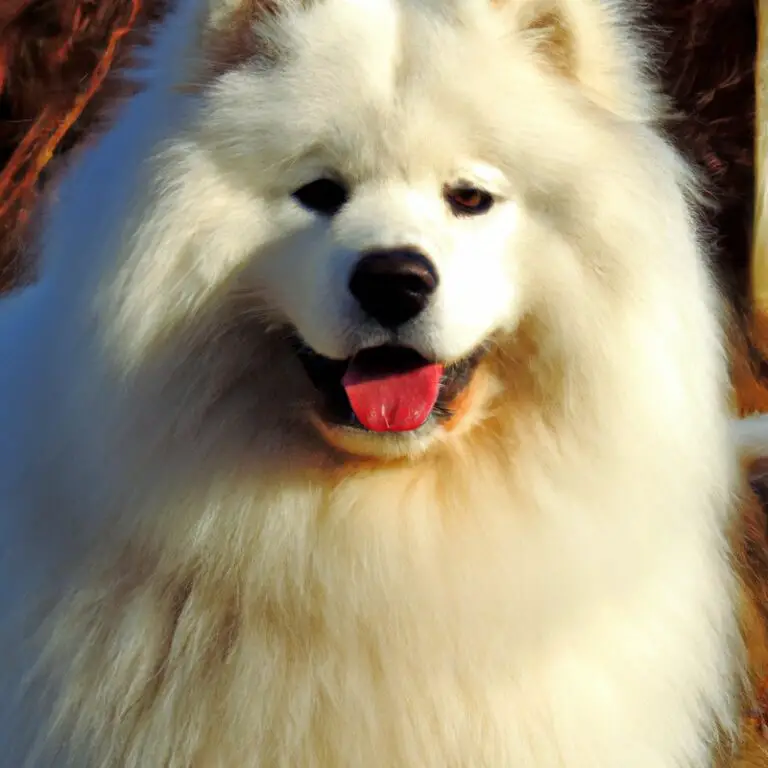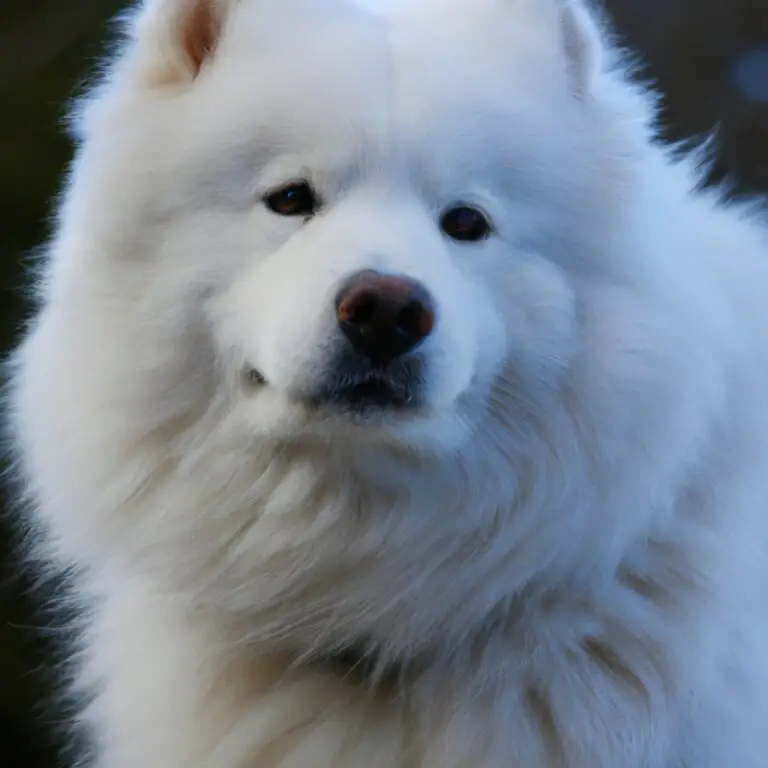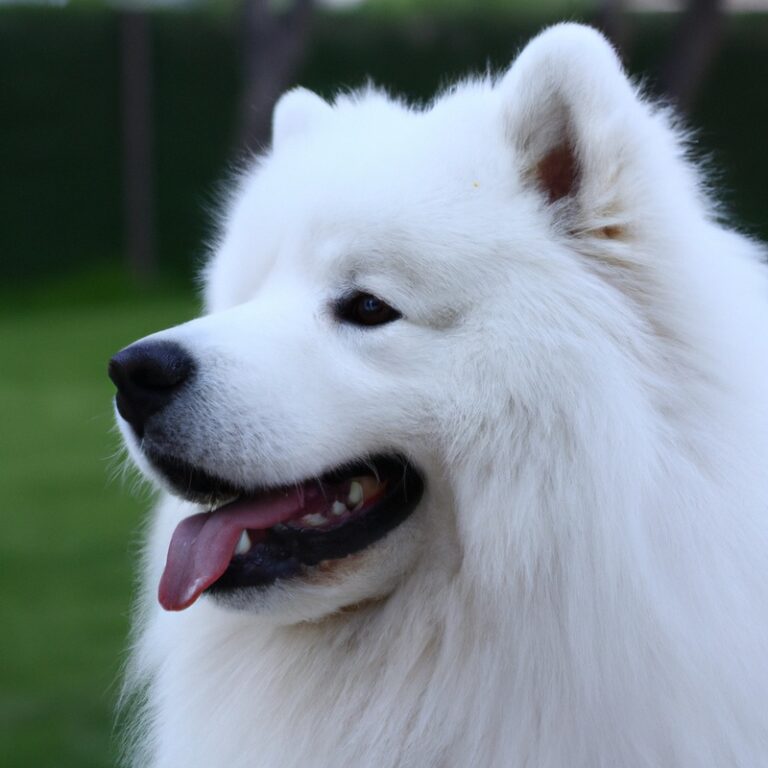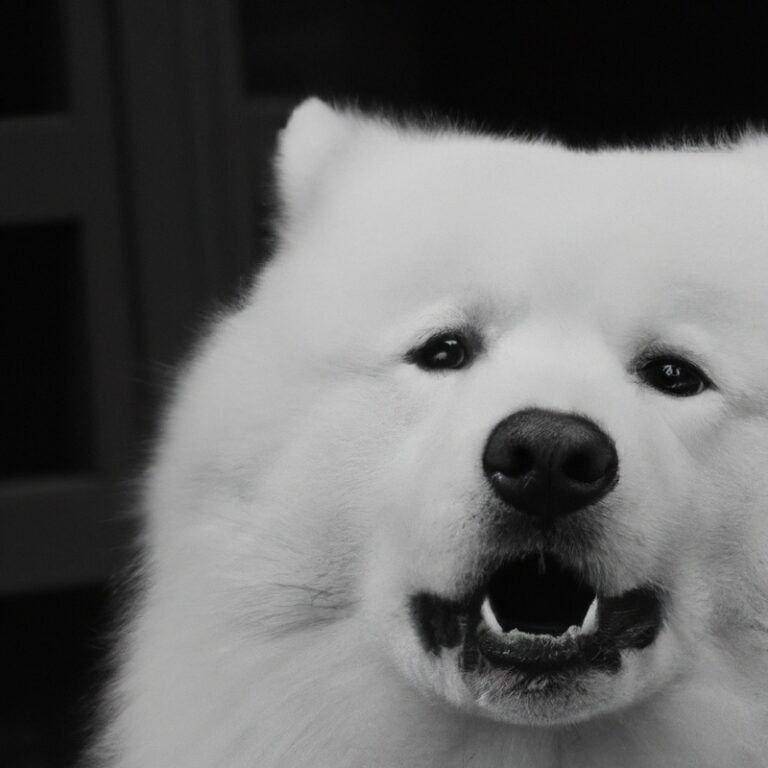Can Samoyeds Be Trained For Tracking Tasks?
Key Takeaways:
- Samoyeds can be trained for tracking tasks, but their success may vary based on individual temperament and motivation.
- Positive reinforcement training methods are generally recommended for teaching Samoyeds to track.
- Early socialization and exposure to different environments can help improve a Samoyed’s tracking abilities.
- Patience, consistency, and regular practice are crucial for training Samoyeds to become proficient trackers.
Are you in awe of the majestic and fluffy Samoyed breed?
Imagine if you could harness their beauty and intelligence for more than just companionship.
Today, I want to explore an intriguing question: Can Samoyeds be trained for tracking tasks?
As a seasoned dog trainer, I have seen these lovable furballs excel in a variety of tasks, but tracking is a whole different ball game.
Join me as I discuss the characteristics of Samoyeds, the challenges in training them for tracking, and the steps to turn your Samoyed into a tracking superstar.
Stick with me, and you’ll be amazed at what these incredible creatures are capable of!
| Factors | Yes | No |
|---|---|---|
| Instinct for tracking | ✔️ | ❌ |
| Trainability | ✔️ | ❌ |
| Exercise needs | ✔️ | ❌ |
| Temperament | ✔️ | ❌ |
Characteristics of Samoyed dogs
Overview of Samoyed breed
The Samoyed breed is known for its friendly and gentle nature.
They are medium-sized dogs with a thick double coat that keeps them warm in cold climates.
Samoyeds are sociable and love being around their human families.
They are good with children and other pets, but can be reserved around strangers.
These dogs have a strong desire to please their owners and are highly trainable.
Samoyeds require regular grooming to keep their coat in good condition.
They are also active dogs that need daily exercise to keep them happy and healthy.
Natural traits relevant to tracking tasks
Samoyeds have several natural traits that make them well-suited for tracking tasks. Their excellent sense of smell allows them to detect and follow scents efficiently.
Their strong work ethic and high energy levels help them stay focused and persistent during tracking exercises.
Additionally, their friendly and sociable nature makes them easy to train and work with. Their dense, waterproof coats also enable them to track in various weather conditions.
Overall, these natural traits make Samoyeds a good choice for tracking tasks.
Challenges in training Samoyeds for tracking
Training Samoyeds for tracking can present a few challenges. Firstly, their independent nature can make it difficult to keep their focus solely on the task at hand.
Secondly, their high energy levels can sometimes make them more interested in exploring their surroundings rather than following a specific scent trail.
Finally, their friendly and people-oriented nature may cause them to become easily distracted by interactions with others during the tracking process. Patience, consistency, and positive reinforcement techniques are key to successfully training Samoyeds for tracking tasks.
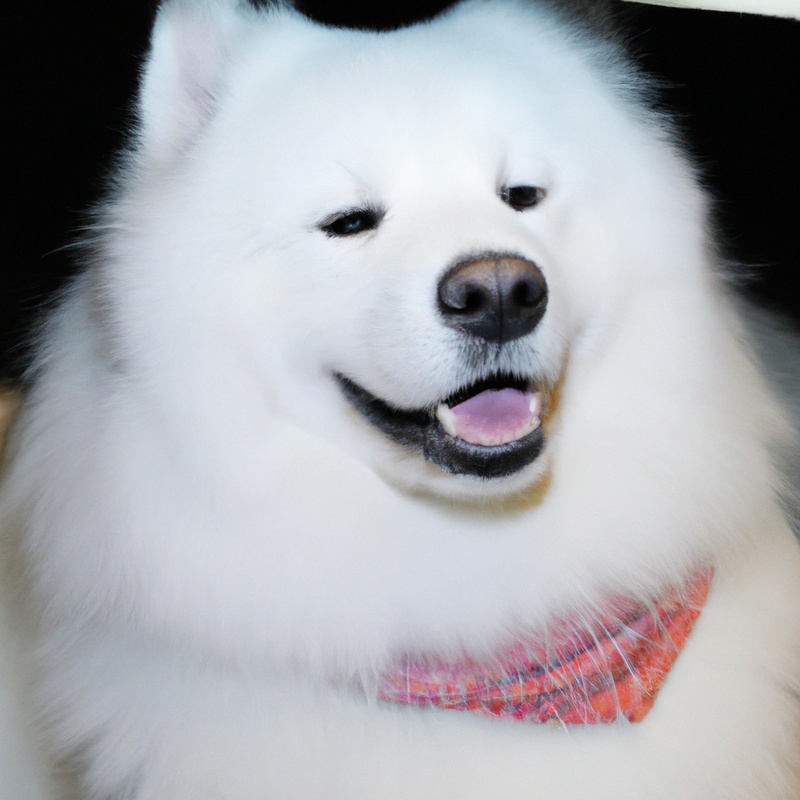
Training considerations for tracking tasks
Importance of early socialization and basic obedience training
Early socialization and basic obedience training are essential for Samoyeds to thrive in tracking tasks. By exposing them to various people, animals, and environments during their early development stages, they learn to be comfortable and confident in different situations.
This helps reduce fear-based behavior and improve their ability to focus and work effectively.
Basic obedience training establishes a solid foundation of obedience, which is crucial for successful tracking tasks. It helps them understand and respond to commands, enhancing their reliability and cooperation during tracking activities.

Use of positive reinforcement methods
Positive reinforcement methods are highly effective for training Samoyeds in tracking tasks. By using rewards such as treats, toys, or praise, you can motivate your Samoyed to engage in and excel at tracking behavior.
Positive reinforcement builds a strong bond between you and your dog, making the training process more enjoyable for both of you.
Additionally, it helps to create a positive association with the tracking task, increasing the likelihood of success. Remember to be consistent and patient while using positive reinforcement, and you’ll see great results with your Samoyed.
Patience and consistency in training Samoyeds for tracking
Training Samoyeds for tracking tasks requires patience and consistency. It’s important to remember that every dog is unique and will progress at their own pace.
In order to be successful, you need to give your Samoyed time to understand and practice the tracking skills.
Consistency is key in reinforcing the training methods and expectations. By being patient and consistent with your training, you can help your Samoyed become a proficient tracker.

Steps to train Samoyeds for tracking tasks
Building a strong foundation: focusing on basic commands
Building a strong foundation in training your Samoyed begins with focusing on basic commands.
Start with simple commands like “sit,” “stay,” and “come.” Consistency and positive reinforcement are key in building these foundational skills.
Use treats, praise, and repetition to reinforce the commands.
Gradually increase the difficulty by adding distractions to the environment.
Remember to always be patient and celebrate progress, no matter how small.
With a strong foundation in basic commands, you can then move on to more advanced training tasks.
Incremental training for advanced tracking skills
Incremental training is key to developing advanced tracking skills in Samoyeds.
Start by establishing a solid foundation in basic tracking techniques.
Gradually introduce more challenging tasks, such as scent discrimination and working in different environments.
Incorporate distractions and varying levels of difficulty to build their capability.
Consistency and patience are essential, ensuring regular practice sessions and positive reinforcement.
With incremental training, your Samoyed can master advanced tracking skills with time and dedication.
Tools and equipment for training Samoyeds for tracking
Tracking harness and leash
When it comes to training Samoyeds for tracking tasks, a tracking harness and leash are essential tools.
The harness should be sturdy, comfortable, and adjustable to ensure a proper fit.
A good leash should be long enough to give your dog freedom of movement but still allow you to maintain control.
Look for a leash with a strong clip and a comfortable handle for easy handling.
By using a tracking harness and leash, you can effectively guide and control your Samoyed during tracking activities.
Reward-based training treats
Reward-based training treats are a great tool for training Samoyeds for tracking tasks.
Positive reinforcement through treats helps to motivate and encourage desired behaviors in your dog.
It’s important to choose treats that are tasty and enticing to your Samoyed, as this will increase their willingness to work and learn.
Make sure the treats are small and easy to consume, so training sessions can flow smoothly.
Remember to use treats sparingly to avoid overfeeding and keep your Samoyed motivated throughout the training process.
Scent articles or scent pads
Scent articles or scent pads are essential tools for training Samoyeds in tracking tasks.
These articles or pads are usually made of cloth or other materials that can hold and retain scent.
By introducing your Samoyed to articles or pads that have the scent of a specific object or person, you can teach them to track and locate that scent.
It’s important to gradually introduce these articles or pads during training sessions, rewarding your Samoyed for correctly identifying and finding the desired scent.
This helps develop their tracking skills and strengthens their ability to follow scents effectively.
Challenges in training Samoyeds for tracking tasks
Distraction management during training sessions
During training sessions, managing distractions is key to ensuring effective learning for your Samoyed. To successfully manage distractions, start by choosing a quiet and familiar environment for training.
Minimize background noise and eliminate any potential distractions.
Use high-value treats or rewards to capture your dog’s attention and keep them focused on the task at hand. Break the training sessions into short, frequent intervals to keep your dog engaged and motivated.
Gradually increase the level of distractions as your dog progresses to build their ability to concentrate in different environments.
Always set your Samoyed up for success by gradually exposing them to distractions and providing positive reinforcement for good behavior.
Potential difficulties due to high prey drive
Samoyeds with high prey drive can present certain challenges when it comes to training them for tracking tasks.
Their strong instinct to chase and hunt can make it difficult to keep their focus on the task at hand.
This can lead to distractions and decreased accuracy in tracking.
Additionally, their prey drive may cause them to become overly excited or reactive in certain situations, making it important to carefully manage their training environment to ensure safety.
Working with a professional trainer who understands the unique needs of high-prey drive dogs can help address these difficulties.
Weather conditions affecting scent tracking abilities
Weather conditions can greatly impact a Samoyed’s scent tracking abilities.
Heavy rain or snow can wash away scent trails, making it difficult for the dog to follow.
Strong winds can disperse scents, making it harder for the dog to pick up and track.
Extreme temperatures, such as intense heat or cold, can also affect a Samoyed’s ability to track effectively.
These weather conditions can pose challenges for training and affect the accuracy of tracking tasks.
Professional assistance for training Samoyeds for tracking
Benefits of working with professional trainers
Working with professional trainers can have several benefits when it comes to training your Samoyed for tracking tasks.
Here are a few reasons why it is beneficial:
- Expertise and experience: Professional trainers have the knowledge and experience to understand the needs and capabilities of Samoyeds. They can tailor the training methods to suit your dog’s specific requirements.
- Structured training programs: Trainers can provide a structured training program that focuses on the necessary skills for tracking. They can help you set achievable goals and guide you through the process.
- Consistency and continuity: Trainers ensure consistent training by following a specific approach. Their expertise helps in addressing challenges and adapting the training as needed.
- Accountability and motivation: Working with a professional trainer provides accountability and keeps you motivated. They will push you and your Samoyed to reach your full potential.
- Faster and more effective results: With professional guidance, you can achieve faster and more effective results. Trainers know the most efficient methods to train Samoyeds for tracking tasks.
Remember, working with professionals can greatly enhance your training experience and increase the chances of success in tracking tasks with your Samoyed.
Finding a qualified dog trainer specializing in tracking tasks
Finding a qualified dog trainer specializing in tracking tasks can be a daunting task, but with a few key steps, you can find the right professional to help you train your Samoyed.
Firstly, ask for recommendations from other dog owners who have trained their dogs for tracking.
Secondly, research local dog training schools or clubs that offer specialized tracking programs.
Thirdly, schedule an interview with potential trainers to discuss their experience and training methods.
Remember, finding a trainer who understands the unique needs of Samoyeds and the intricacies of tracking tasks is essential.
Frequently Asked Questions (FAQs)
Can all Samoyeds be trained for tracking tasks?
Yes, all Samoyeds have the potential to be trained for tracking tasks. They are intelligent and eager to please, which makes them trainable for various tasks, including tracking.
However, individual characteristics, temperament, and previous training experiences may impact the ease and success of training.
Consistency, positive reinforcement, and patience are key when training a Samoyed for tracking tasks. Remember to start with basic obedience training before progressing to tracking-specific exercises.
With the right approach and training techniques, Samoyeds can excel in tracking tasks.
At what age should training for tracking tasks begin?
Training for tracking tasks should ideally begin when a Samoyed is around 12 to 16 weeks old.
At this age, they have already developed a basic understanding of commands and have the energy and enthusiasm needed for tracking exercises.
Early training helps them develop the necessary skills and instincts for tracking tasks, allowing them to become proficient in this area as they grow older.
Patience and consistency are key when starting training at this age.
Can a Samoyed still be a family pet while being trained for tracking?
Yes, absolutely! A Samoyed can still be a wonderful family pet while being trained for tracking tasks. These fluffy and friendly dogs excel at both roles.
With the right training, they can learn to track scents and follow trails, while still being loving and loyal members of your family.
Samoyeds are known for their intelligence and trainability, and they thrive on physical and mental stimulation. Just ensure that you provide them with plenty of exercise, mental challenges, and affection, and they will happily embrace both their tracking duties and their role as your beloved pet.
Final Verdict
Samoyeds can indeed be trained for tracking tasks. Their natural traits, such as their intelligence, perseverance, and keen sense of smell, make them well-suited for this type of work.
Training considerations, such as early socialization, positive reinforcement methods, and patience, are crucial for success.
Building a strong foundation and incremental training steps are key to developing their tracking skills. The right tools and equipment, as well as managing distractions and prey drive, are important factors to keep in mind.
Working with a professional trainer and starting training at an early age can greatly benefit the process.
Despite being trained for tracking, Samoyeds can still be excellent family pets. In conclusion, Samoyeds can be exceptional tracking dogs with the right training, guidance, and tools.
Taking advantage of their natural traits and implementing appropriate training considerations, such as early socialization and positive reinforcement, is crucial.
Building a strong foundation and gradually advancing their tracking skills through incremental training is key. While challenges may arise, such as managing distractions and prey drive, professional assistance can be sought to overcome these obstacles.
Ultimately, with dedication and patience, Samoyeds can be successful at tracking while still being loving and cherished family pets.

